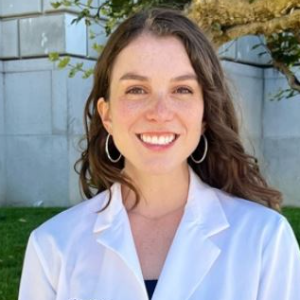Title : Birthing experiences during the covid-19 pandemic: A mixed methods study of changes to delivery location and companions
Abstract:
COVID-19 has drastically changed the experience of maternal and reproductive healthcare in the United States, amplifying existing disparities. COVID-19-related stressful birthing experiences have been associated with subsequent poor maternal and infant health outcomes including greater postpartum stress, trouble with mother-infant bonding, and difficulties with breastfeeding. This mixed methods study examines changes in birthing plans and experiences due to COVID-19, including birth location and companionship. We describe patients’ perinatal experiences during the pandemic and examine associations with sociodemographic variables including age, income, education level, insurance status, geographic location, and race and ethnicity. The study examines if changes in birthing location and restrictions on companions due to COVID-19 are correlated with patients’ sociodemographic characteristics. The project utilizes data collected as part of a larger study, COVID-19’s Impacts on Reproduction in the United States (CIRUS), which gathered data on the experiences of patients seeking contraception, prenatal, postnatal, miscarriage and abortion care during COVID-19. Participants answered survey questions and a subset of participants participated in qualitative interviews. The qualitative analysis revealed (1) companionship restrictions during delivery increased patient stress, including the stress of choosing between a partner and a parent and the disappointment of not being able to have desired family members present during birth; (2) restrictions on companionship during delivery caused loneliness, as many participants were not able to have any companions with them due to restrictions and other logistical barriers; (3) restrictions and uncertainty around COVID-19 caused patients to consider alternative locations to hospital births. Participants discussed how they contemplated community births due to the restrictions and uncertainty of hospital policies. Through the quantitative analysis, we found sociodemographic differences in birthing location and companion restrictions among people giving birth during COVID-19. Statistically significant variables for delivery location were race, education level, and insurance status. For delivery companionship, the statistically significant variables were race, insurance, and region. Further, we found that restrictions on companionship during delivery increased patient stress and loneliness, and COVID-related uncertainty and restrictions prompted patients to consider alternative locations to hospital birth.
Audience Take Away:
- Research on COVID-19-related restrictions’ impacts on patients’ experiences with pregnancy care is lacking. Studies relating to birth and the pandemic have largely focused on the clinical pregnancy outcomes, but less so on patients’ experiences and thoughts. This study helps to answer the question of how COVID-19 impacted birthing experiences, especially in correlation with sociodemographic data.
- This presentation will describe patients’ perinatal experiences during the pandemic, particularly regarding birthing location and companionship restrictions. The presentation describes the associations between these perinatal experiences and patients’ sociodemographic variables, including age, income, education level, insurance status, geographic location, and race and ethnicity.
- The presentation provides information on how different sociodemographic groups experienced birth plan changes during the pandemic, which can help providers and researchers identify specific obstacles that may increase restrictions. This data can be shared to improve the quality of birthing experiences as pandemic-related restrictions evolve and in preparation for future public health crises.




